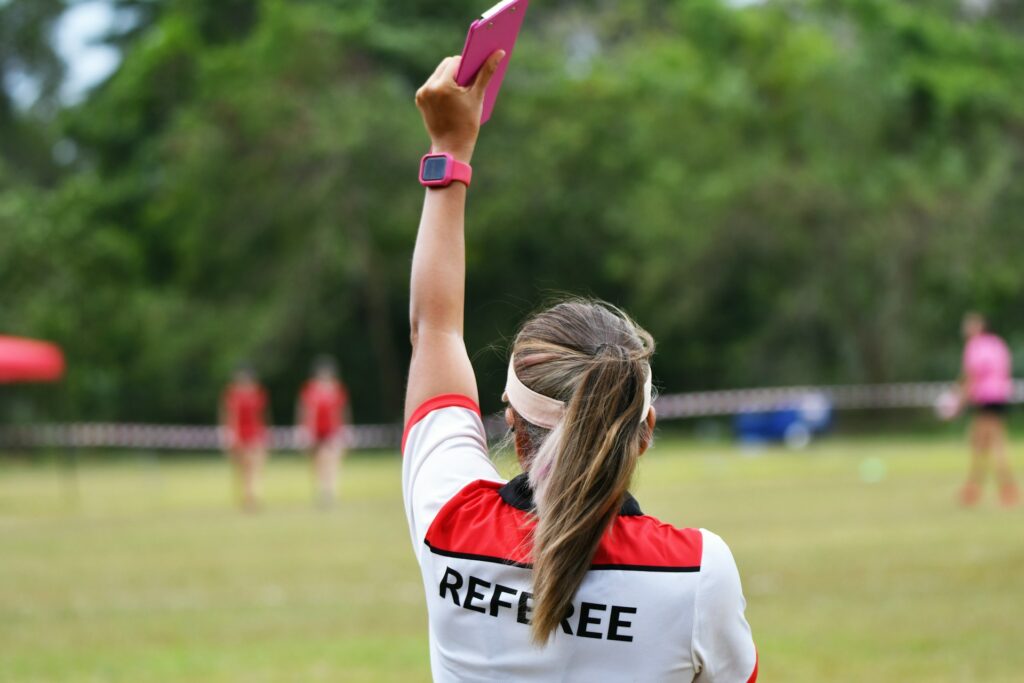The story of refereeing is a story of trust and conflicts. Referees were always treated as the final word of truth in sports. But with the rise of technology the very foundations of that authority can be shifted from a human to machine. We all saw this amazing progress AI made for a couple of years and many ask whether AI can replace referees by 2030? The answer is not that straightforward as many may think. From one point of view, artificial intelligence has moved very close to decision-making. On the other hand, human professionals make mistakes but these mistakes add some spice to the game.
Ask yourself, if the shift is already happening. We’ve seen this new goal-line technology in football that is already used to verifying if the ball had truly crossed the line. There’s a similar technology in Tennis called Hawk-Eye that analyzes boundary calls. Then the Video Assistant Referee was introduced so that referees have more data to make a decision. Is this system perfect? Not really! But even at this point it’s already making a difference. And now we see AI referee technology being developed. It is indeed the next big thing in sports but do we really need full automation? Do we want to be in the point where human referees are assisted or even overruled by machine intelligence?
What once seemed like science fiction is now a reality in sports. Cameras track every angle. Smart sensors in uniforms detect fouls. Machine learning models review thousands of hours of play to train AI systems and achieve the level that no human being will be able to achieve. And as a result we have a landscape where athletes and fans benefit from these technological advancements. But are matches now fairer, or is controversy just evolving into some different form?
From VAR to Fully Integrated AI
It’s not the first time when we try to leverage IT infrastructure and systems. The VAR was the first step towards assisting systems. But despite its promise, VAR was flawed. It often slowed down games, sometimes failed to add clarity to situations. Who would want that to happen during matches?
AI refereeing is another step to change the script of how everything works now. Instead of pausing the game, computer vision and special ML algorithms analyze everything in real time. This brings positive results. For example, offside decisions are no longer a problem. Typical ML algo flags offside within seconds using movement trackers. And it really works. No wonder many people are advocating AI as the next big thing in refereeing. Tennis is perhaps the most advanced sport where AI is used. Human line judges have largely disappeared at the top level, replaced by voice-assisted AI systems that shout “out” or “fault” right away. Players now know there’s no point debating with an algorithm that has already processed the ball’s trajectory in milliseconds.
This race to implement automation here and there is not just about accuracy. Players, coaches, fans… we all want efficiency! Because efficiency is all we need from referees after all, right? Nobody wants to waste time waiting for the outdated VAR to add some clarity, we want action and we want it now! Using AI also means having a cleaner product for broadcasters and sponsors because there’s no freezes and stops during matches. For leagues, it means fewer scandals are tied to refereeing mistakes.
Advantages of AI Refereeing
Human referees have different styles. Some call games “tight,” others “loose.” This inconsistency frustrates both players and fans. If AI will be responsible for refereeing, it will offer the same standard across every match so there’s gonna be no room for talks if the referee helps this or that team. AI has no favorites. It judges only the data while referees are only human and can be swayed by a player’s reputation or unconscious biases. These benefits lead us to a sporting world free of human error, where victory is determined purely by skill and performance, not by occasional referee mistake.
Football
Football, the world’s most watched sport and for obvious reasons it is a good testing playground for AI referees. FIFA, UEFA, and domestic leagues already use the semi-automated offside technology, where AI tracks players with centimeter accuracy. At this point, the system is fast enough to determine whether or not there was an offside within seconds. Automated systems can even 3D visualizations for broadcasters to illustrate the situation for TV audiences. On the other side of the rope, coaches argue that football is a game of flow and counting millimeters damages the spirit.
Basketball
Basketball is a very fast and chaotic game full of borderline calls. Travel violations, charging fouls, and goaltending are things that provoke loooots of furious debates. With an AI system there’s an option to analyze literally every frame of footage. How cool is that, right? In theory, this should ensure fairness, but in practice this raises questions about over-officiating. Fans worry the game could become too flat with each move here and there penalized right away.
Esports
Esports is a relatively new field not for AI referees but in terms of being in the same line with traditional sports. But the more audience eSports have the better should be refereeing and reporting. AI referees usually monitor not only gameplay but also hardware integrity, ensuring players do not cheat through macros or scripts. When you run massive tournaments with millions of viewers, you definitely don’t want someone to cheat, right? AI keeps the competition clean mainly because eSports are entirely digital and it is way easier to control and analyze it using AI.
Betting and the Role of AI
The sports betting industry is one of the biggest stakeholders of using AI in refereeing because bookmakers have a big interest in accuracy. A single scandal can shake confidence driving bettors away from the brand causing millions of dollars in damage. Platforms like 777bet io openly support AI implementation and even use AI bots and AI security policies in their products to ensure confidence of their players.



